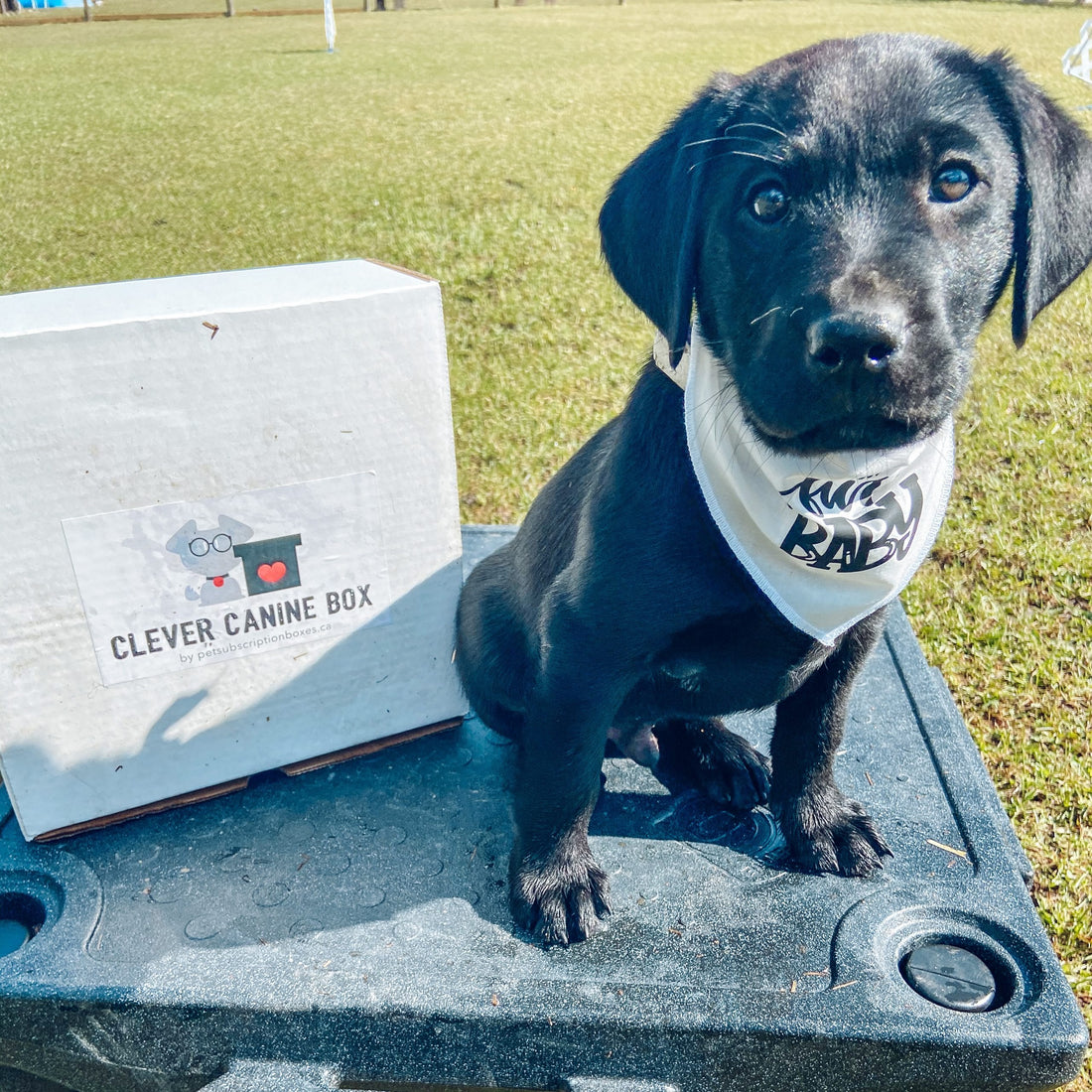
Things To Know About Puppy Enrichment
Share
Is Enrichment important for my puppy? Should I start enrichment with my puppy soon? Will enrichment make a difference for my puppy? You may have had some or all of these thoughts when acquiring your new furry family member, and the answer is YES! Enrichment is important at every stage of your dog’s life, but starting it early is going to lay the foundation for all future activities you're able to do with your dog.
Puppies and dogs are always learning, but this is especially true during your puppy’s secondary socialization period which occurs from approximately 6-12 weeks of age. During this time your puppy is learning how to live in our world. It is during this time that they are most enthusiastic about approaching and interacting with new things. By the end of the secondary socialization period, they have usually made up their mind about how they generally feel about things. This is not to say that these feelings can’t be changed through conditioning in the future. It is just a rough basis.
With so many unique and different ways to add enrichment to our pet’s lives, we want to teach our dogs that new and strange objects can be fun, and not scary. We want to teach them that noises and movement are no big deal. We also want them to learn that their effort will be rewarded, and trying new things pays off! These are all skills that will help them enjoy the vast array of enrichment activities our world has to offer.
But how do we do this? Slowly! As with anything in our dog’s lives we want to do things in baby steps or small approximations. This is especially important for our new puppies as they can become easily overwhelmed. Their eagerness to interact with things because they are new can be a blessing and a curse. They want to experience these new things, but because everything is new, it is easy for them to go over threshold in a seemingly normal environment. Here are some things to keep in mind to get you and your puppy started in the right direction.
Start At Home.
While it may be tempting to start introducing your puppy to the big wide world right away, it's important to remember that going to a new family in a new home is plenty new for your puppy to adjust to in the first week or so. Your home is likely where your puppy will spend the most time, so making positive experiences built around noise and movement in the home is a perfect way to start preparing for any and all future activities.
Become Familiar With The 5 Types Of Enrichment
It may feel overwhelming, or impossible to know where to start, but taking pieces of each type of enrichment can help make it more manageable. To do the big things, your puppy must first be okay with the little things.
Cognitive Enrichment: Teach the puppy to eat food in new environments. Establish a marker work to assist in all future training, drop treats on the floor and allow the puppy to sniff them out.
Physical Enrichment: Teach the puppy that wearing and walking in a collar or harness means fun things. Allow them to explore shallow waters in a safe and fun way. Teach them that digging and chasing are allowed, but have rules or guidelines.
Social Enrichment: Let them make friends with other puppies their age and meet new people who will make your puppy enjoy meeting strangers. Watch new species from afar, ensuring your puppy isn’t scared or overly excited. Going to new places in the car is fun!
Sensory Enrichment: Teach your puppy that being touched all over is no big deal, and can even be relaxing! Trying different foods is yummy. Novel sounds aren’t scary, but they can be interesting and soothing. Watching people walk by isn’t stressful, but an enjoyable pastime.
Toy Enrichment: Teach your puppy to play games such as tug or fetch. Allow them to get easy food out of toys. Toys that move and make sounds are fun and not something to be scared of.
These are just some examples of things your puppy will need to be comfortable with before you do more advanced or bigger types of enrichment. As you start, you will begin to notice there will be some activities your puppy likes more than others, but that doesn’t mean you should stop doing them. (Unless it’s more than a general indifference. Consult a professional if you have any concerns or think something is abnormal.) The more things you can teach your puppy to enjoy, the more opportunities you will have in the future to do fun and unique activities.
Have Fun!
Exposing your puppy to new things is meant to be fun, and not a chore. If you find yourself having trouble doing it alone, join a puppy class! They are designed to teach you and your puppy to live harmoniously together, and that includes being accepting of new people and things. It’s important to remember to enjoy your time with your puppy because that’s what enrichment is all about! Alter the environment to encourage activities that mimic behaviours the animal would do in the wild and improve their mental and physical wellbeing.
Enrichment is meant to be fun and enjoyable, not stressful, and that applies to you, too!









